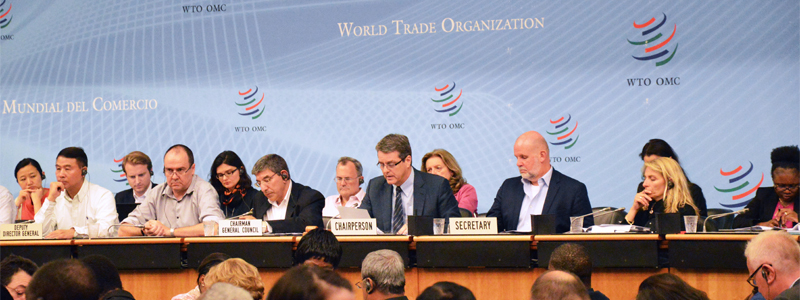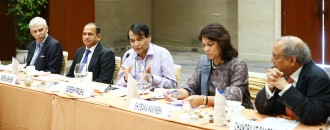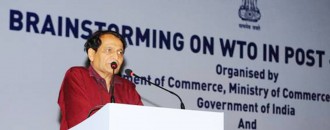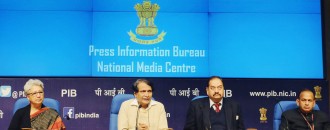
WTO fails to ‘bridge gap’ with India on Trade Facilitation Agreement
Bidhu Bhushan Palo | @TheDollarBiz
 This is not just another delay; this will have consequences, said WTO Director-General Roberto Azevêdo. Pic copyright: WTO
This is not just another delay; this will have consequences, said WTO Director-General Roberto Azevêdo. Pic copyright: WTOThe World Trade Organization (WTO) has failed to ratify the Trade Facilitation Agreement (TFA) that was finalized at the 9th WTO Ministerial Conference at Bali in December 2013 mainly due to India’s reluctance to allow consensus on TFA before negotiating a permanent solution on food subsidies. TFA was hailed as the first major agreement among WTO members since its inception in 1995. The legally binding agreement promises to reform global trade and aims to cut red tape; make trade easier, faster and cheaper; and simplify customs procedures among 160 WTO members. The agreement would also help landlocked countries to seek access to ports in neighbouring countries. According to the WTO, the world economy could grow by $400 billion - $1 trillion by reducing costs of trade by 10% to 15% and other benefits due to the “Bali Package” which was supposed to be adopted by July 31, 2014. However, the draft agreement of the “Bali package” was reached last year after last-minute negotiations with developing countries like India that ended in an interim solution which allowed developing countries to continue food security programs. Under the current WTO’s "Amber Box" domestic support model, governments are allowed to stockpile and support agriculture produce up to 10% of annual production. However, developing countries such as India say that the limit is based on old numbers. Moreover, India is worried that it cannot implement the recently enacted Food Security Law if the interim solution is challenged by other countries, as it is happening already. India needs to stockpile around 60 million tonnes of food grains to implement the Food Law, which is around 23% of total food grain production in the country. Last week, the Indian government said, “Having signed on to the Ministerial Decisions in Bali, let there be no doubt about India’s commitment to those Decisions including the Trade Facilitation Agreement. All we are asking is that the public stockholding issue as well as other decisions of Bali be taken forward in the same time frame as Trade Facilitation.” India said that it is a matter of life and death for millions of poor farmers and that the TFA must be implemented only as part of a single undertaking including the permanent solution on food security. According to sources, India is the only country blocking the TFA, and the WTO Director-General Roberto Azevêdo expressed disappointment at the stalemate yesterday (listen to his audio statement to the Trade Negotiations Committee or TNC). He said, “We have not been able to find a solution that would allow us to bridge that gap,” and hinted that India may have to face consequences. He said, “My sense, in the light of the things I hear from you, is that this is not just another delay which can simply be ignored or accommodated into a new timetable — this will have consequences. And it seems to me, from what I hear in my conversations with you, that the consequences are likely to be significant.” The WTO chief has urged nations to reflect on the ramifications of this setback to multilateral trading system and take a decision by September 2014.





 to success.
to success.